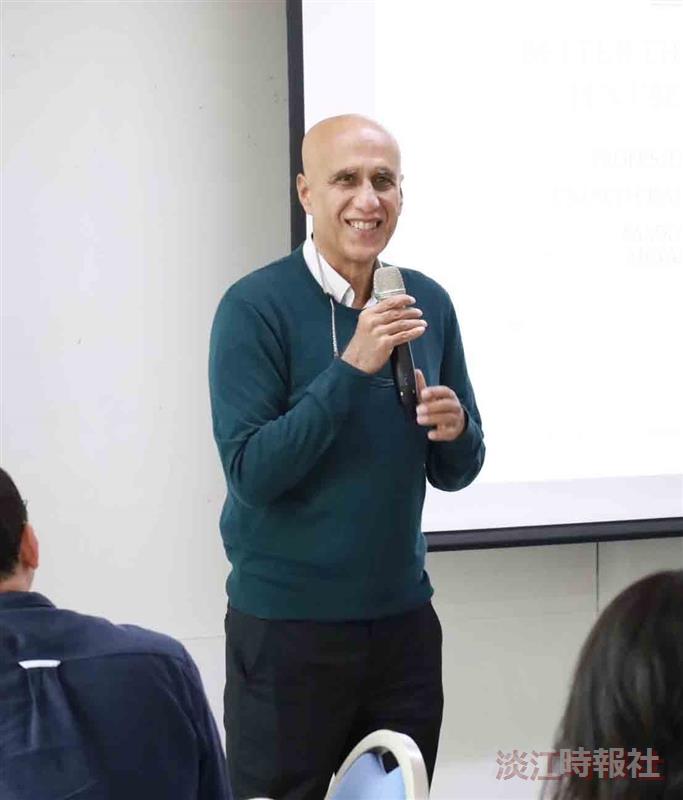
Dr. Sohail, one of the top 2% scientists in the world. (Photography/Chen Youjing)
The School of Education held two “Future Literacy Workshops” in ED601 at noon on March 5th and 7th, led by visiting research scholar Dr. Sohail Inayatullah, including academic About 70 people including Xu Huihuang, vice president and director of the Center for Sustainable Development and Social Innovation, and other members of the Futureization Committee, as well as teachers and students from the School of Education and the Seeds of Exploring Sustainability participated. Xu Huihuang delivered a speech at the workshop and expressed the hope that through Sohail’s leadership and application of tools and methods, we can achieve our expected future goals.
Sohail, one of the top 2% of scientists in the world, discussed “Futures” with teachers during the two-day workshop. He tells teachers that futuristic research is better than a crystal ball. “Because the crystal ball is asking others to tell you what the future is, and future research is you making a crystal ball.” He tried to ask questions from different angles to guide the discussion among members. He said: “There is no right answer. But this will It starts to put you in a mindset of future literacy and futurist thinking.”
In addition to guiding teachers to understand future research methods, he further mentioned “using the future” to create a vision of the future, “making the future compelling and making it different.” He cited the example of Singapore’s transportation department cooperating to transform Changi Airport. In order to defeat Dubai Airport, they held a workshop with Suhail and discussed the idea of ”3D printing avionics equipment” to turn Changi into the world’s first learning center airport in 2030, and immediately Put it into practice. He used this example to illustrate that futurists try to find out what the “next” is and help change strategies to make the vision a reality. “We are not only studying futurology, but we are also doing our best to change the future.”
In addition to case sharing, the second workshop was also conducted with Causal Layered Analysis (CLA). Taking the theme of future thinking, Sohail emphasized that futures studies are the core of the development of education departments in various countries. He cited the Norwegian Ministry of Education as an example, which through cultivating personal achievements, collaboration, emergency response and ministry practice, Expanding the future of education.
When talking about the dilemma of future development, Sohail took Australia’s Roma countryside as an example to explore how humans respond when faced with threats. In addition to promoting industrial alliances and developing precision farming, Sohail can also use technology to coexist with threats. . He said that the ability to cope with and perform in the future is a powerful factor in becoming a leader in the industry. In terms of learning, he believes that interdisciplinary thinking, openness to different solutions, and positive thinking about the future are the only ways to cultivate future literacy, and can also increase work efficiency and life satisfaction.
Regarding the future university model, Sohail invited distinguished guests and students to form a workshop to talk about his future imagination of Tamkang University, such as no age limit for students, uberlization of the campus, and no traditional classrooms. E-campus. He asked the participants to deeply understand the concepts and practices of future education through brainstorming, and gradually achieve: “Make learning something that makes you happy from the bottom of your heart.”
Yip Rong, a Master of Operations and Management who participated in the workshop, said that he has further focused on the concept of futurism. He supports sustainable education and technological change, and hopes: “Starting from the discipline of future studies, I hope that there will be new technologies and new technologies in the future.” Education comes in the form.”
Report By: Lai Yingxiu and Chen Yun Tamsui Campus Report
Published By: Tamkang Times (in Chinese)
Click here to read the article in original in Chinese.
